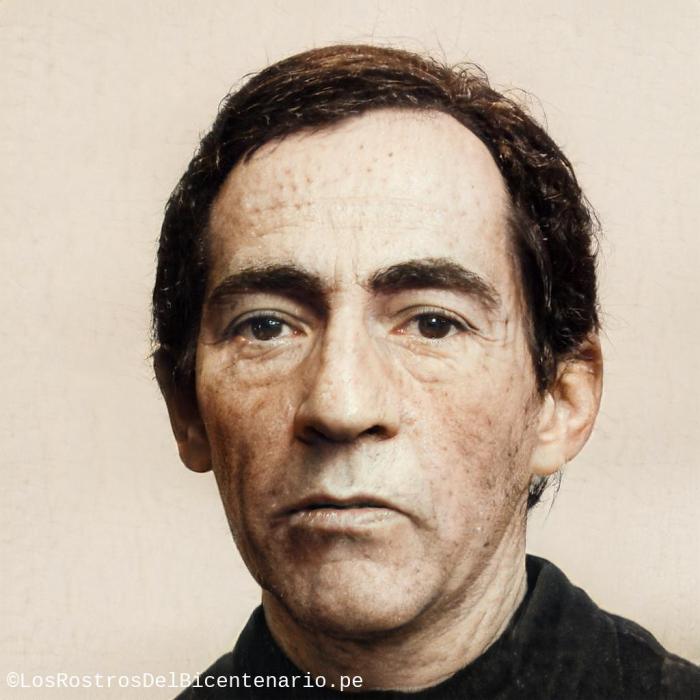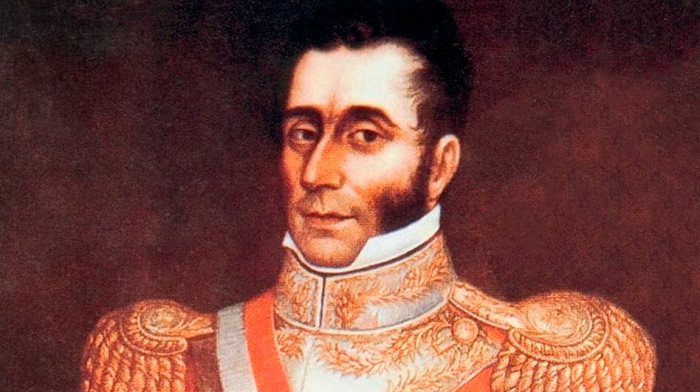Jose bernardo adolph nosotros no – José Bernardo Adolph, a towering figure in Brazilian history, played a pivotal role in the nation’s struggle for independence. His unwavering dedication to democracy, federalism, and social equality left an indelible mark on Brazil’s political and cultural landscape.
Born into a prominent family in the late 18th century, Adolph received a privileged education that fostered his intellectual curiosity and political aspirations. As Brazil yearned for self-governance, Adolph emerged as a leading voice for independence, using his eloquence and charisma to rally support for the cause.
José Bernardo Adolph’s Background

José Bernardo Adolph was a Brazilian military officer and politician who played a significant role in the Brazilian independence movement. He was born in 1788 in Rio de Janeiro, Brazil. His father was a German merchant, and his mother was a Brazilian woman.
Adolph received a military education and joined the Portuguese army. He fought in the Napoleonic Wars and rose to the rank of captain.In 1821, Adolph returned to Brazil and joined the movement for independence from Portugal. He was one of the leaders of the Brazilian army that defeated the Portuguese forces at the Battle of Ypiranga in 1822. After Brazil gained its independence, Adolph served in the Brazilian government and army.
He was a member of the Brazilian Constituent Assembly and served as Minister of War from 1824 to 1826. Adolph died in 1851.
Adolph’s Political Ideals

José Bernardo Adolph was a prominent political figure in the 19th century who held strong beliefs and ideologies that shaped his political actions and writings. His political ideals were rooted in the principles of democracy, federalism, and republicanism, while also emphasizing the importance of social and economic equality.
Adolph believed in the power of the people and their right to participate in the governance of their society. He advocated for a democratic system where citizens could elect their representatives and hold them accountable for their actions. He also supported the idea of federalism, which divides power between a central government and smaller, regional governments.
This division of power, he argued, would prevent the concentration of power in the hands of a single entity and protect the rights of individuals.
Stance on Republicanism
Adolph was a staunch advocate for republicanism, which emphasizes the separation of powers, the rule of law, and the protection of individual rights. He believed that a republican government would be the most effective in preventing tyranny and safeguarding the interests of the people.
Adolph’s writings and speeches often stressed the importance of civic virtue and the active participation of citizens in public affairs.
Views on Social and Economic Equality
Adolph was also deeply concerned with social and economic equality. He believed that all citizens should have equal opportunities to succeed, regardless of their background or circumstances. He advocated for policies that would promote economic development, reduce poverty, and provide access to education and healthcare for all.
Adolph’s commitment to equality extended to all members of society, including women and minorities.
Adolph’s Contributions to Brazilian Independence

José Bernardo Adolph played a pivotal role in the Brazilian independence movement. His passionate speeches, influential writings, and strategic actions significantly contributed to the cause.
Involvement in the Movement
Adolph actively participated in the clandestine meetings and discussions that laid the groundwork for the independence movement. He penned numerous articles and pamphlets that ignited the spirit of nationalism among Brazilians.
Speeches and Writings
Adolph’s eloquent speeches resonated with the masses. He delivered fiery addresses that condemned Portuguese rule and advocated for Brazilian self-determination. His writings, published in newspapers and circulated widely, further disseminated his ideas.
Role in the Constituent Assembly
After the declaration of independence, Adolph was elected to the Constituent Assembly. He actively participated in the drafting of the Brazilian constitution, ensuring that the principles of liberty, equality, and national sovereignty were enshrined in the document.
Adolph’s Legacy and Impact: Jose Bernardo Adolph Nosotros No

José Bernardo Adolph’s revolutionary ideas and actions left a profound impact on Brazilian society, shaping its political and cultural landscape for generations to come.
Adolph’s advocacy for Brazilian independence and self-governance inspired subsequent political movements and leaders. His ideas resonated with the growing sense of nationalism among Brazilians, who sought to break free from Portuguese colonial rule.
Influence on Political Movements
- Adolph’s writings and speeches became rallying cries for independence movements, providing intellectual and ideological support to revolutionaries.
- His ideas influenced the formation of political organizations and parties dedicated to achieving Brazilian independence.
- Adolph’s legacy continues to inspire political activism and the pursuit of democratic ideals in Brazil.
Role in Shaping Brazil’s Political Landscape, Jose bernardo adolph nosotros no
- Adolph’s contributions to the Brazilian independence movement helped establish a republican form of government.
- His ideas on federalism and decentralization influenced the structure of Brazil’s political system, promoting regional autonomy.
- Adolph’s emphasis on education and social reform laid the foundation for future policies aimed at improving the lives of Brazilians.
Cultural Impact
- Adolph’s writings and speeches helped define a sense of Brazilian identity and national pride.
- His ideas promoted cultural and intellectual exchange, contributing to the development of Brazilian literature, art, and music.
- Adolph’s legacy continues to be celebrated through historical monuments, public spaces, and cultural events.
Key Questions Answered
What were José Bernardo Adolph’s key political beliefs?
Adolph advocated for democracy, federalism, and republicanism. He believed that power should be vested in the people and that the government should be accountable to its citizens.
How did Adolph contribute to the Brazilian independence movement?
Adolph was a vocal supporter of independence, delivering speeches, writing pamphlets, and participating in the Constituent Assembly that drafted Brazil’s first constitution.
What was Adolph’s role in shaping Brazil’s political and cultural landscape?
Adolph’s ideas and actions helped to establish Brazil as a democratic republic. His commitment to social equality laid the foundation for a more just and equitable society.